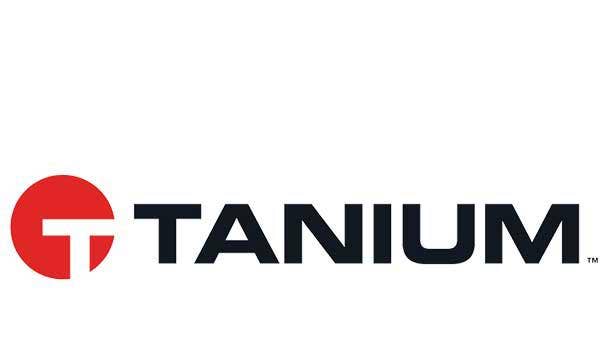5 Companies That Came To Win This Week
For the week ending Nov. 22, CRN takes a look at the companies that brought their 'A' game to the channel.

The Week Ending Nov. 22
Topping this week's roundup of companies that came to win is distributor Ingram Micro for launching a series of channel assistance initiatives in leasing, finance and security talent.
Also making the Came to Win list this week is Google Cloud for a key hire in channel management, Intel for its dominance in the supercomputer realm, Salesforce for debuting a number of channel initiatives, and Tanium for launching its first partner program.
Not everyone in the IT industry was making smart moves this week, of course. For a rundown of companies that were unfortunate, unsuccessful or just didn't make good decisions, check out this week's 5 Companies That Had A Rough Week roundup.

Ingram Micro Details Plans For Channel Assistance In Leasing And Financing, Security Talent And Analytics
Ingram Micro this week unveiled a wave of new channel initiatives and resources designed to help solution providers stay on the forefront of key markets such the Internet of Things, security and digital transformation. The announcements came during the distributor’s Ingram Micro ONE 2019 conference in Denver.
Responding to customer demands for as-a-service pricing and ways to turn hardware into operating expenses, Ingram Micro launched a program to provide SMB and MSP partners with up-front hardware financing and other “as-a-service” expenses. Ingram Micro also promoted the benefits of its Lease IT program that makes it easier for partners to better manage their own cash flow while providing their customers with as-a-service options.
Cybersecurity services are in big demand these days but hiring the necessary talent to provide those services can be challenging for solution providers. Ingram Micro is addressing the problem with Ingram Micro Link, a way for MSPs and solution providers to find contract security expertise and manpower when customers need cybersecurity solutions that go beyond what the partner can provide. Ingram Micro also has organized its security vendors and products around identify, protect, defend, respond and recover, making it easier for partners to design and implement security solutions and services.
And Ingram Micro is taking all the data it has collected through its years of working in the channel and providing partners with a business intelligence tool to access that information and gain insight about their own company and customers and identify new ways of boosting their business.

Google Cloud Hires Former Cisco Channel Exec Nirav Sheth
Google Cloud continues to build up its executive ranks. This week the company said it has hired longtime Cisco channel executive Nirav Sheth to serve in a partner sales leadership role.
Sheth recently left Cisco, where he was vice president of worldwide sales and systems engineering for the networking giant’s Global Partner Organization. He had been with the company for nearly 20 years and was widely seen as the right-hand man to global channel chief Oliver Tuszik. He has played a key role in the company’s transition from a hardware manufacturer to a software and services-focused company.
The hire is a savvy move for Google Cloud. Sheth told CRN that he will be helping partners harness cloud computing and deliver more value to their customers.
Sheth sees his new role as an opportunity to accelerate business with different kinds of channel partners based on new market opportunities as many customers adopt a cloud-first strategy.

Tanium Launches First Partner Program With Emphasis On Total Partner Value
Tanium wins kudos this week for unveiling the Tanium Partner Advantage program, the security tech developer’s first formal partner program, which will officially launch on Feb. 1, 2020. The announcement came this week at the company’s Tanium Converge 2019 conference in Nashville, Tenn.
The program rewards solution provider partners for fulfilling the terms of custom business plans created jointly with Tanium. Partners will be assessed on total partner value, which factors in financial performance, expertise development, investment in growth, and customer success.
The program does not have program fees, strict training requirements, or tiers with specific requirements and benefits.

Salesforce Outlines Initiatives To Ignite Ecosystem Growth
Salesforce used this week’s Dreamforce 2019 extravaganza to detail a number of partner-focused initiatives, recognizing that the cloud application giant needs the channel to meet its goal of doubling the company’s size over the next few years.
During Dreamforce, Salesforce executives, including CTO and co-founder Parker Harris and channel chief Tyler Prince, said the company needs systems integrators, consultants, digital agencies and ISVs to achieve the company’s goals. Salesforce has previously said it aims to build a channel of 250,000 service partners.
That includes partners with expertise in specific industries, given Salesforce’s strategy of extending into industry verticals. Systems integrators are seen as critical as it leverages its recently acquired MuleSoft platform to integrate data from Oracle and SAP ERP systems with Salesforce applications.
The initiatives include a new Architect Certification Program, expanded partner learning, and resources to help customers find implementation partners who are best suited to their goals. The vendor is also implementing a new engagement model through which Salesforce’s advisory services arm will collaborate more closely with channel partners in customer engagements and integration projects.

Number Of Supercomputer Sites Using Intel Xeon Cascade Lake Nearly Triples
Intel earned some bragging rights this week when an annual ranking of the world’s top 500 supercomputers said that 26 supercomputers are using Intel Xeon Cascade Lake processors, up from just nine one year ago.
The semiconductor manufacturer continued to dominate the top 500 overall with 470 supercomputer systems—94 percent—split between multiple generations of Xeon and Xeon Phi processors.
Intel rival AMD saw its EPYC processors make a first-time appearance on the list with four high-performance systems using that processor. And the number of supercomputers using Nvidia GPU accelerators grew to 136.